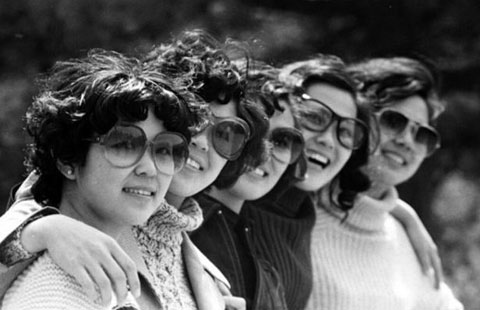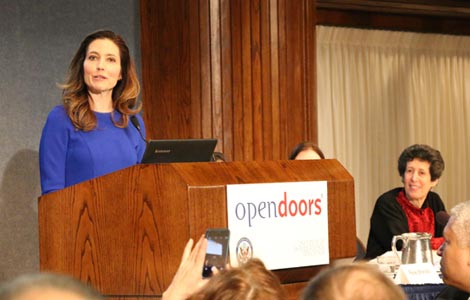Childhood brain tumors affect identity in adulthood
Updated: 2014-11-18 09:50
(English.news.cn)
|
||||||||
Patients who have been treated for cancer of the central nervous system (CNS) (or brain tumors) in childhood or adolescence can show affected self-perception and self-identity in adulthood, according to latest study by the Karolinska Institutet.
According to a press release from Karolinska Institutet on Monday, the late-effects of CNS cancer of childhood are not restricted to health and physical and neuro-psychological function. The illness experience as a whole, with the increased risk for tumour/treatment-related damage intrudes upon on self-perception and contribute to shaping of psychological identity.
It shows that a negative instead of positive self-perception was more common among survivors. Earlier radiation treatment towards the brain and permanent physical scars increased the risk for an adverse effect on self-perception in adulthood.
"In addition to health-related, neuro-cognitive and function problems they also engage personality factors linked to identity, mental health and psychological well-being," said Krister K. Boman, principal investigator at the Department of Women's and Children's Health at Karolinska Institutet.
"The results bear witness of the width of the psychological consequence of brain tumor illness in childhood, and of the necessity of adequate support, and of psychosocial rehabilitation resources. These findings allow for specifying the need for early and continued preventative measures for these patients," He added.
Researchers say, the findings verify the importance of intensified preventative measures in health care, and a follow-up plan extended into adulthood that meets the specific needs of adult patients who survived paediatric brain cancer.
In addition to measures against earlier known problems, medical health care has to attend to that CNS diseases and treatment intrudes upon long-term personality development.
The study was conducted with funding from the Swedish Childhood Cancer Foundation and Karolinska Institutet research grants in Sweden and the results have been published in the scientific journal Neuro-Oncology.

 China then and now through a lens
China then and now through a lens
 Stock Connect provides new opportunities
Stock Connect provides new opportunities
 India-China joint counterterrorism training exercise in Pune
India-China joint counterterrorism training exercise in Pune
 Crazy climbers take death-defying selfies
Crazy climbers take death-defying selfies
 China International Pet Show opens in Beijing
China International Pet Show opens in Beijing
 Top 10 Internet companies by market value
Top 10 Internet companies by market value
 Open Doors report finds increases in intl enrollment
Open Doors report finds increases in intl enrollment
 Xi attends welcoming ceremony by Australian Governor-General Cosgrove
Xi attends welcoming ceremony by Australian Governor-General Cosgrove
Most Viewed
Editor's Picks

|

|

|

|

|

|
Today's Top News
China then and now through a lens
China sends record number to study in US
Chinese firms starting to think outside the box
Apple taps UnionPay for China link
Stock Connect provides new opportunities
Deal set to boost food cooperation
China once again boasts world's fastest supercomputer
Life sentence in Chinese students' slayings
US Weekly

|

|








